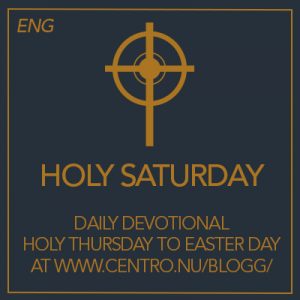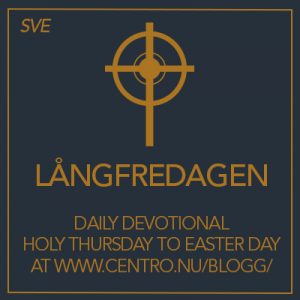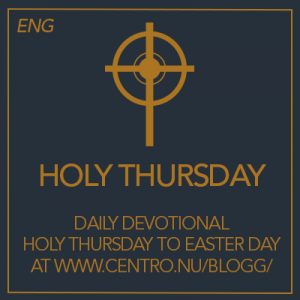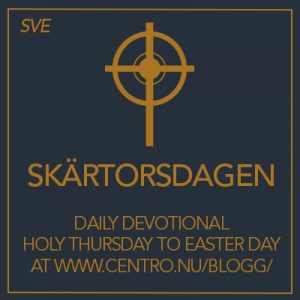EASTER REVISITED
Vi säger ibland att Jesus är allt vi behöver. Ganska ofta omedvetna om den otroliga innebörd och sanning som dessa orden döljer.
Påskens händelser porträtterar fullheten av denna sanning. Det exodus som judarnas folk fick uppleva från Egypten är ett faktiskt Guds ingripande i tiden som står som en profetisk pekare mot ett än större exodus för en hel mänsklighet. Det exodus som skulle komma med Jesus.
Lammets blod som skulle strykas på vårt hjärtas dörrpost, så att döden måste gå oss förbi. Guds folk är ett folk som ska leva om vi än dör.
Uttåg ur syndens slaveri och uttåg från död under främmande makt. Till ett liv i frihet; frihet att fira gudstjänst, att dela gemenskap, frihet att välja ett annat liv och det avgörande att vi börjar leva våra liv i riktning mot löfteslandet.
Det kanske inte blev så fantastiskt som du tänkt dig – alltid. Trots uttåget. Israels folk började tvivla i öknen. De förlorade blicken mot löfteslandet – deras riktning. De förlorade tacksamheten över det Gud gav dem, manna från himlen och friskt vatten från klippan. Han var dem nära – han ledde dem både om dagen och natten. De var fria att tillbe. Och att leva med riktning, syfte och mål.
Vi må leva i öknen. Men vi lever våra liv med en riktning. Nattvarden påminner oss om denna fullhet – ”i nattvarden förkunnar vi Herrens död tills dess han kommer åter”. Vi får leva av brödet och av vinet – försoningen. Friheten och kallelsen till ett nytt liv. Med riktning. Gud ger oss manna (Ordet) och han ger oss av sitt levande vatten (Anden). Anden som är försmaken på det tillkommande rikets (löfteslandets) härlighet och fullkomlighet. Vi har gemenskapen – och tjänsten inför Guds ansikte.
Redan nu men ännu inte.
Vi är inte kvar i Egypten. Men ännu är inte allt i fullkomlighet. Men vi är på väg. Vi lever med riktning. Vi vet vart vi ska. Siktet inställt på löfteslandets. Och under tiden så har vi alla dessa välsignelser att leva av. Försoningen och frihet från synd, Anden, Ordet, Gemenskapen och tjänsten inför Gud. Mening med livet i den riktning våra liv fått. Och det eviga livets löfte genom Lammets blod.
Allt detta förkunnar påsken. Kristus är i sanning allt vi behöver. Hela det kristna livet porträtteras i exodus – hela det kristna livet är i Kristus fördolt och uppenbarat. Kolosserbrevet säger att ”i Kristus är visheten alla skatter gömda.” (Kol 2:3)
Allt finns här. Allt finns i Kristus.
Påskens budskap är värt att återbesöka – att leva av.
Easter Revisited.
Jakob Rönnerfors
Pastor @ CENTRO






